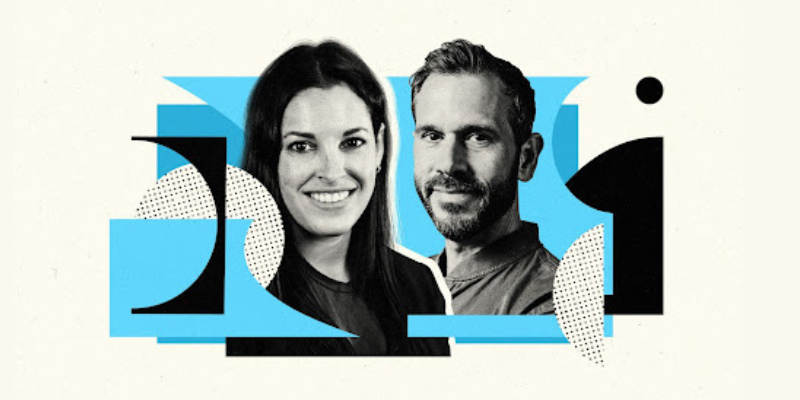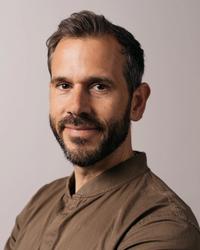Curious Builders, This Is Your Invitation To Join Primary’s Operator in Residence Program
An inside look at how the role works, as told by former OIR Rebecca Schwartz.

In a past life, I was a founder—twice. This experience, plus extensive angel investing and advising early stage founders, prepared me for what has become the most exciting experience of my career: building Primary Labs. This is the container for incubation at Primary, and the key to our productivity is a team of Operators in Residence. Unlike the typical and undefined role of an Entrepreneur in Residence seen at many other firms, Operators in Residence are curious builders and startup enthusiasts looking to cut their teeth with early stage company building.
My collaborator Tobias Citron and I wanted to offer a window into what this experience is like and which kinds of candidates are best suited for it. So we tapped Rebecca Schwartz, who joined us from Columbia Business School and previously rose through the ranks at GLG’s insights business, where she gathered and shared expertise from leaders around the world.
The experience, as told by Rebecca:
When I first joined the Primary Incubation team as an intern in 2020, I was still considering career paths in early stage startups and VC. Getting an opportunity to explore a VC incubator environment through my MBA internship and full-time as an OIR opened up a middle road. Since then I’ve had the chance to help incubate two businesses: Plural, an open-source infrastructure tool, and a stealth startup focused on the Internet of Things. Building the incubation plane as we fly it has been a fascinating journey in ideating, validating, launching, and building startups.
Post-MBA, an Accelerated Course on Entrepreneurship
My time as a Primary OIR lined up with my second year of business school and my first year post-MBA, but when I reflect on the experience, it has served as its own mini-MBA in entrepreneurship. Bringing academic concepts as diverse as strategy frameworks, VC finance, accounting concepts, and people strategy to business ideas I’ve worked on has been an excellent real-life classroom. Building networks in focused verticals with investors, industry experts, and customers has been the driving force behind each incubation. Developing a sense for what makes for a good startup idea, early stage economics, and investor sentiment has provided me with significant exposure to the VC and startup ecosystem.
Wearing a founder’s shoes—a bit more comfortably
The role encompasses all the activities a founder might perform in the earliest days of a startup idea—market research, customer discovery, product ideation, and networking with potential advisors and investors. In the OIR program, all of this happens within the context of some structure provided by Primary’s Incubation team—a cohort experience with peers going through the same day-to-day, check-ins and status updates for accountability, and the valuable perspective of experienced venture investors to stress-test ideas.
Entrepreneurial flow state
The OIR experience also benefits from intense depth relative to the inch-deep-mile-wide of many investing jobs. As OIRs, we are intensely focused on one business idea at a time, rapidly becoming experts in the spaces we’re looking at. I liken the experience of this to the nirvana of a Wikipedia rabbit-hole: every angle opens up new areas of inquiry, leading to research considerations, industry experts to speak with, and articles, podcasts, and conferences to dive into. By conducting a high volume of customer discovery, we get immersed in the ideas we work on. This takes place without distractions—limited internal meetings, email/Slack time wasting, competing priorities, or side projects—just full commitment to an idea until we decide to backburner, kill, or greenlight the business.
What it takes and where it takes you
Of course, the role comes with challenges too. Avoiding the bias that can stem from being solely focused on a project that becomes your baby can make it hard to move on from, even when it’s the correct business decision. You need self-discipline and intrinsic motivation to keep a project moving forward and make progress in an extremely independent role. The program is open-ended in terms of what comes next, which creates tremendous flexibility but can feel like you’re wading in extremely uncertain waters. For me, this open-endedness has allowed me the opportunity to engage deeply in the ideation journey; develop best practices in customer research; manage operations as the first employee at a pre-seed incubation; and finally to join a second incubation full-time this summer. All four of the OIRs in my cohort are now founding team members of businesses they incubated.
If you’re someone who wants to experience startup life at its earliest stages and set yourself up to be on a founding team, I encourage you to explore opportunities in Primary’s Operator in Residence program here.
